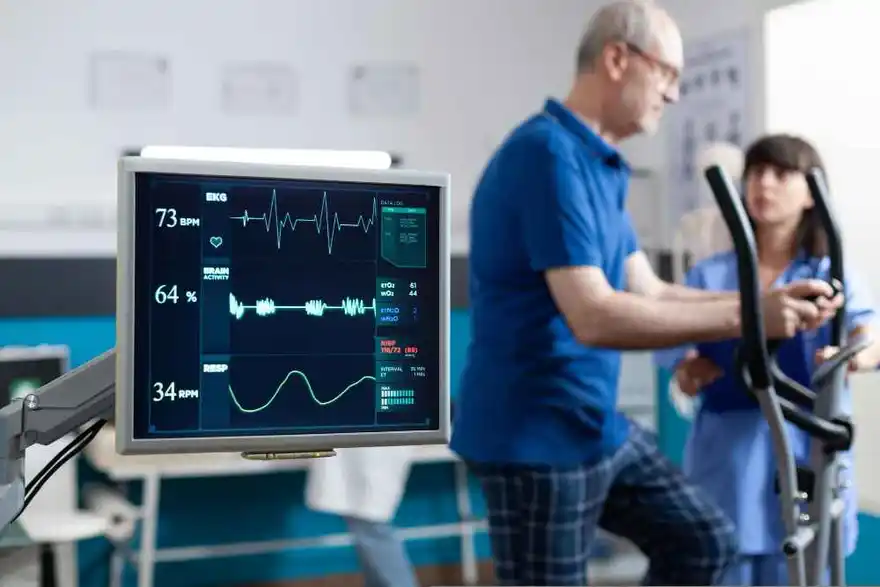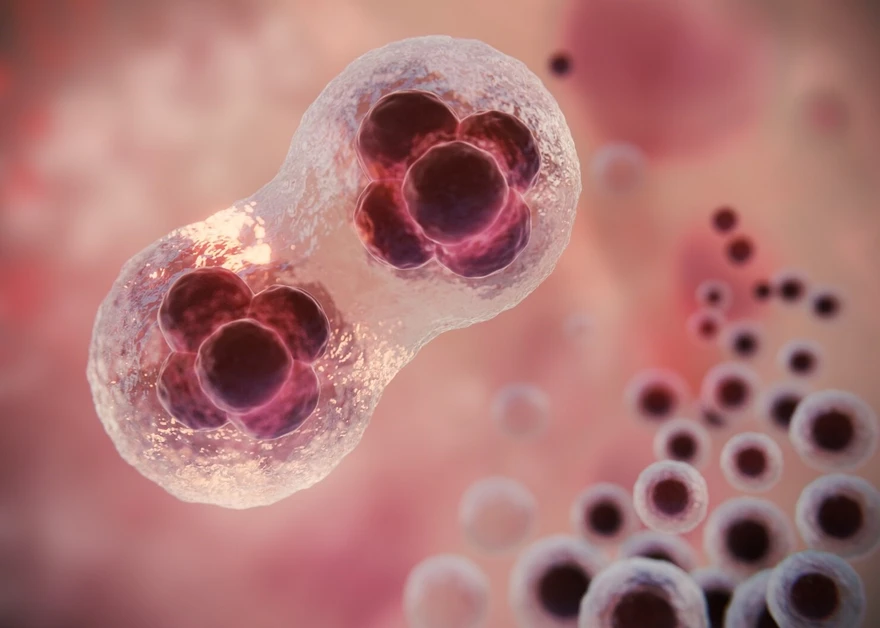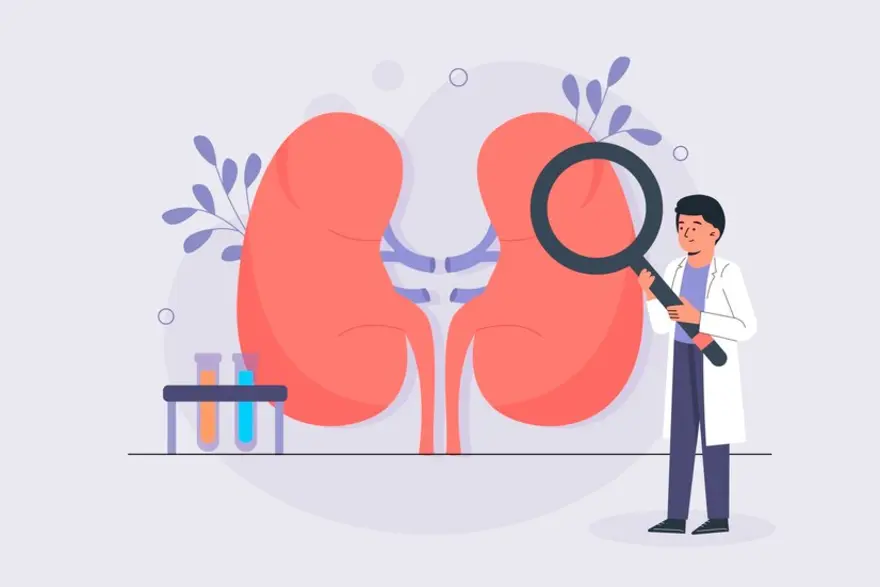Preventive Healthcare
Atrial Fibrillation: Symptoms, Causes, Treatment Options & More
860 Views
0

Introduction:
Atrial fibrillation may not be life-threatening per se. However, if left untreated, the irregular heart rhythm in atrial fibrillation can turn serious. Let's dig deeper to understand it better.
What is Atrial Fibrillation?
Atrial fibrillation, also known as Afib, is a condition when the heart beats irregularly and often too fast. In Afib, the top part of the heart contracts rapidly, giving a 'fluttering' or 'skipping beat' kind of sensation instead of beating effectively.
How Does Atrial Fibrillation Affect the Heart?
In atrial fibrillation, the usual pattern of electrical signals in your heart gets disturbed, causing irregularities that can affect how effectively your heart pumps blood.
During Afib, the upper chambers of the heart (atria) do not contract properly, causing blood to pool and move inefficiently. As a result, less blood is pumped from the atria to the lower chambers (ventricles) of the heart, affecting the overall circulation of blood in your body. The pooling may also cause blood clots to form, leading to strokes or heart failure.
What are the Types of Atrial Fibrillation?
There are four types of atrial fibrillation:
- Paroxysmal atrial fibrillation: The atrial fibrillation symptoms may come and go, lasting from a few seconds to hours, and subside within a week.
- Persistent atrial fibrillation: In this type of Afib, the irregular heartbeat lasts more than a week.
- Long-standing persistent atrial fibrillation: This type of Afib is constant, lasting for more than 12 months.
- Permanent atrial fibrillation: In this type of Afib, the irregular heart rhythm cannot be reversed.
What are the Symptoms of Atrial Fibrillation?
The commonly felt atrial fibrillation symptoms are:
- Palpitation (faster heartbeat)
- Chest pain and discomfort
- Shortness of breath
- Dizziness
- Lightheadedness
- Fainting
- Confusion
- Inability to exercise
Some people may not experience atrial fibrillation symptoms at all, i.e., have asymptomatic Afib that can only be detected during regular health check-ups.
What causes Atrial Fibrillation?
Atrial fibrillation occurs due to an alteration in the heart's electrical system or tissue injury. Hyperthyroidism, high blood pressure and coronary artery disease can also be atrial fibrillation causes.
A triggered heartbeat usually sets off Afib. However, it’s hard to pinpoint the exact atrial fibrillation causes for the same. Research is still ongoing to uncover the specific conditions.
Beyond this, poor lifestyle choices and family history increase the risk of atrial fibrillation.
How is Atrial Fibrillation Diagnosed?
For an effective atrial fibrillation diagnosis, you may have to share your medical and family history, routine activities, diet, and symptoms. Then, your doctor may check your heartbeat, pulse, blood, thyroid gland size, etc., to determine how your body is functioning.
Tests to Diagnose Atrial Fibrillation
Along with a physical examination, your doctor may suggest certain atrial fibrillation diagnosis tests, which may help in selecting the right treatment plans, like:
- Electrocardiogram (ECG): Measures your heart's electrical activity and detects irregular rhythms.
- Holter Monitor: Worn for 24 to 48 hours, this monitor records your heart's activity during daily life, providing comprehensive data for understanding and treating atrial fibrillation.
- Event Monitor: Like a Holter monitor but worn for up to 30 days, the event monitor records heart rhythm only when activated in response to atrial fibrillation symptoms, tracking irregularities.
- Echocardiogram: Using sound waves, an echocardiogram creates images of your heart's structure and function for the identification of any underlying conditions.
- Blood Tests: To assess potassium and thyroid hormone levels and evaluate liver and kidney function to rule out imbalances that may cause Afib.
What are the Treatments For Atrial Fibrillation?
Atrial fibrillation treatment focuses on controlling your heart rate. Your options may include:
- Medication: Beta-blockers, calcium channel blockers, or antiarrhythmic drugs help control the heart rate. You may also need blood thinners to lower the risk of blood clots and stroke.
- Cardioversion: Electrical shocks (electric cardioversion) or medication (chemical cardioversion) are used to restore the heart's normal rhythm. This can be a one-time treatment or may need to be repeated.
- Catheter Ablation: If none of the above works, your doctor may recommend catheter ablation. This involves inserting thin tubes (catheters) into your heart to zap and restore normal electrical signals.
- Surgical Procedures: Maze surgery or surgical ablation may be used to create scar tissue in your heart to disrupt abnormal electrical pathways and restore normal rhythm.
What are the Complications of Atrial Fibrillation?
Blood clots (embolus) are a serious complication of Afib. They can reduce blood flow to the brain, resulting in a reduced oxygen supply to brain cells. This can affect cognitive functions such as memory, focus, reasoning, and problem-solving ability.
In serious cases of Atrial fibrillation, the embolus can also cause strokes or permanent damage to the brain.
Afib wears and tears the heart muscles as the ventricles strain to compensate for the reduced blood flow from the atria. This may result in heart failure if left untreated.
What are the Risk Factors for Atrial Fibrillation?
The risk factors for atrial fibrillation increase with age (above 65 years), including:
- High blood pressure
- Heart disease
- Diabetes
- Obesity
- Excessive alcohol consumption
- Smoking
- Sleep apnea (breathing difficulty during sleep)
- Family history of Afib
How do I Stop Worrying About Afib?
Managing atrial fibrillation can be overwhelming, but here are some steps to ease your worries:
- Stay informed about your condition
- Follow your atrial fibrillation treatment plan
- Maintain a healthy lifestyle
- Seek support from doctors, family, and friends.
Is Afib a Serious Heart Condition?
Yes, atrial fibrillation can be a serious condition, but with proper medication and lifestyle management, you can reduce the risk of complications such as stroke and heart failure and lead an active and fulfilling life.
Does Afib Go Away on its Own?
In some cases, your atrial fibrillation may resolve on its own, particularly if it is triggered by excessive alcohol consumption and stress. However, for many people, it is a chronic condition that requires continuous management.
Does Afib Cause Heart Attacks?
While atrial fibrillation itself does not cause a heart attack, the embolus created due to blood pooling can travel to arteries that supply blood to the heart and brain and lead to a heart attack or stroke.
What Does Atrial Fibrillation Feel Like?
Afib can feel different for each person; however, most people complain of quivering in the chest and a racing heart that may last for a few minutes. Other Atrial fibrillation symptoms discussed above may also manifest.
Conclusion
Living with atrial fibrillation can be challenging, but remember that you’re not alone. By understanding your condition, following your atrial fibrillation treatment plan, and making healthy lifestyle choices, you can effectively manage atrial fibrillation and reduce the risk of Afib-related complications.
Metropolis Diagnostic Lab offers comprehensive diagnostic services tailored to your individual needs. For advanced cardiac testing, you can rely on Metropolis Diagnostic Lab to provide accurate and timely results. Take control of your health journey today with Metropolis Diagnostic Lab by your side.













1701259759.webp)









 WhatsApp
WhatsApp